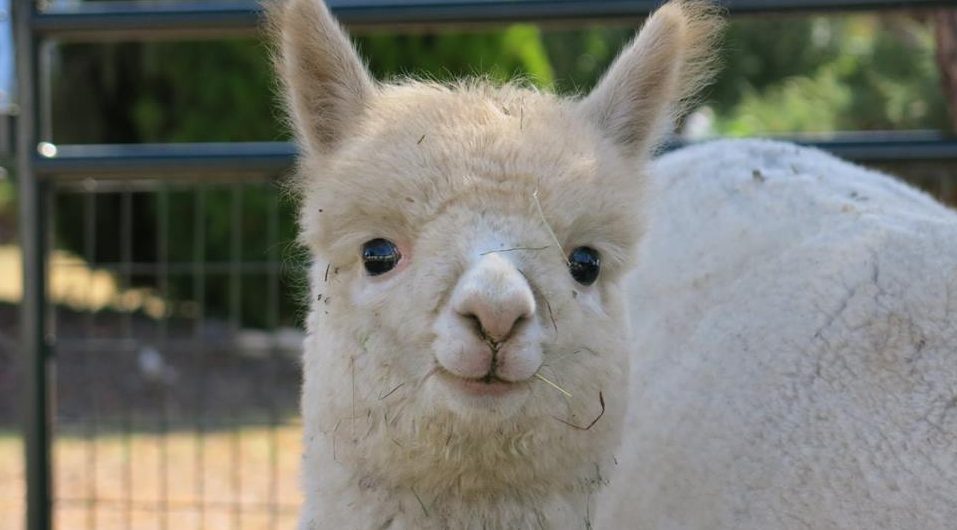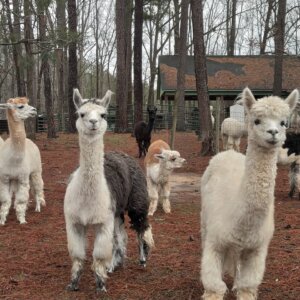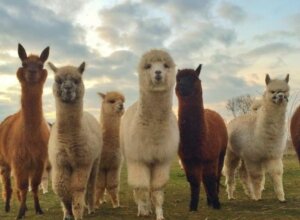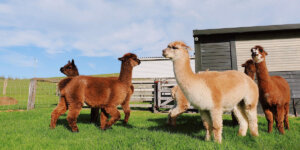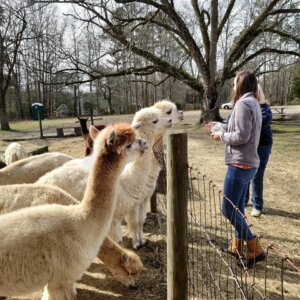How To Start an Alpaca Farm: Top 10 Tips for Raising Cuteness and More
Introduction: Why alpacas?
Alpacas are cute animals that are becoming more and more popular. They are used for various purposes such as wool and meat, but their most important use is as a companion animals.
Alpacas are the perfect pet for people who want to get close to nature. Their soft fur and gentle nature make them great companions. They also make great children’s pets because they have a calm personality and can be handled easily by kids.
Gabor Degre | BDN
10 Tips to Start an Alpaca Farm and Raise Cuteness
Alpacas are gentle and friendly animals that make great farm companions. They are easy to care for, require little space, and can be easily bred. They also produce a soft fiber that can be used to make clothing, blankets, and other products.
In this blog post, we will cover some of the most important tips for starting an alpaca farm and raising cuteness. We will also discuss the different types of alpacas that you may encounter on your farm as well as how to find the right one for your needs.
1) Get Your Farm Planning Right: Before you start looking at potential alpaca farms to buy or rent, it's important to plan out what type of farm you want to create. Some people want a large commercial-scale operation with multiple alpacas per acre, a small hobby farm with one alpaca per acre, etc. It's important to plan out your goals and expectations before you start looking at properties.
2) Consider Your Alpaca's Needs: I recommend letting an experienced breeder help you evaluate your alpacas' needs and their suitability for the property.
3) Check Your State's Alpaca Regulations: Different states have different regulations for alpacas. For example, in Colorado, there are a variety of rules about how many alpacas you can have on your property or acreage.
4) Consider the Location and Prices of Other Similar Properties: A good way to find out about similar properties is to see what similar properties are going for on the market.
5) Definitely Consider Your Alpaca's Genetic Needs: A reputable breeder will be able to tell you what your alpacas' genetic needs are and help you make a breeding plan.
6) Ask Questions about Alpacas that You Already Have: People who already have alpacas can share their tips, as well as owners of alpacas in your area.
7) Ask Your Veterinarian: Many alpaca owners recommend that you consult with your veterinarian. Some veterinarians are able to provide necropsies and help with breeding plans.
8) If You Need Help Understanding Alpaca Breeding and Care, Consider a Book: There are many books on alpacas available for a variety of levels of understanding. and experience. levels. There are good beginner books that can help you to get started and take the initial steps with breeding, care, and handling your alpacas. . You can also find books to help you troubleshoot common alpaca health problems and provide useful information on breeding.
9) Join an Alpaca Club: Alpacas are social animals and thrive in group settings. Joining an alpaca club may be one way to meet other people with alpacas, learn more about the breed, connect with your alpaca, and find a place to house them.
10) Consider Alpacas for Rescues: Many rescues have alpacas available for adoption. Alpacas make good companions and can be especially important in rehabilitating animals that have been neglected or abused. There are also many programs that help fund the care of these animals by donating canned food or blankets.
5 Things to Look for in a New Alpaca Location and Why You Need to Raise Cuteness on a Budget
Alpacas are not just adorable, they make great livestock. They are low maintenance, efficient, and produce a good quality fiber. However, the cost of raising an alpaca can be a little high for some people. Here are some tips for keeping your budget in check when looking for a new home for your alpaca or planning to start up your own farm.
1) Location: Location is important because you want to make sure that you have enough room and access to water, food, and shelter. If you have too many animals in one area it can cause stress on the animals and weaken their immune systems.
2) Budget: Alpacas need hay (which can get pricey), grain (which makes up their main diet), hay nets, fencing materials, hay racks, pastures, hay wagons, food, water, and space to roam.
3) Health: Many alpacas have a condition called "laminitis" which is inflammation of the lining of the mouth and teeth that can lead to bleeding if not treated properly.
4) Personality: Some alpacas are more sociable than others so you should make sure that you choose an alpaca that you can work with.
5) Allergies: If you are allergic to fur, alpacas don't have fur so this is not a concern.
Why You Should Invest in Your Cute Animal’s Health and Safety
Animal care is expensive. You have to invest in your animal’s food, vet bills, and other needs. This costs a lot of money that you may not have.
You should consider investing in your animal’s health and safety to save yourself a lot of money in the long run. It is important to make sure that your pet has the best quality of life possible while they are alive.
Investing in your pet’s health and safety will help you avoid future vet bills, which can be extremely expensive for some animals.
Breeding: Alpacas typically mate in the spring and will deliver a baby around September or October. Age of purchase: Alpacas can live up to 15- 20 years. Caring for an alpaca: Alpacas have a nice, soft fleece that should not be washed in the machine.
Hand washes and gently dry with a towel. Alpacas are very sensitive and need to be pampered and taken care of! Price: alpacas can cost anywhere from $300-$3, Unsafe to purchase from a pet store or breeder. Alpacas have a nice, soft fleece that should not be washed in the machine. Hand washes and gently dry with a towel.
Tips For Raising Cuteness Without Spending Too Much Money on Pets
We all know that pets are great companions. They are loving and loyal and they will always be there for you. But, not everyone can afford to have a pet.
If you love animals but don't have the money to spend on them, then you should consider getting a pet insurance plan. It's important to get the right plan for your needs because some plans offer better discounts than others.
The most important thing is to find out what type of pet insurance you need before buying it from an online company or any other company that offers it.
Spread the Good Word About Your Alpaca Farm
Alpacas are a type of South American camelid that is well known for its soft, warm, and luxurious fiber. They are also a popular choice for animal lovers who want to have a pet that is not too demanding on their time.
Alpaca farms are becoming more popular in recent years. They are usually found in areas where other farm animals do not thrive due to the weather conditions or terrain. The alpacas produce high-quality fiber which can be used for things like sweaters, scarves, and blankets.
